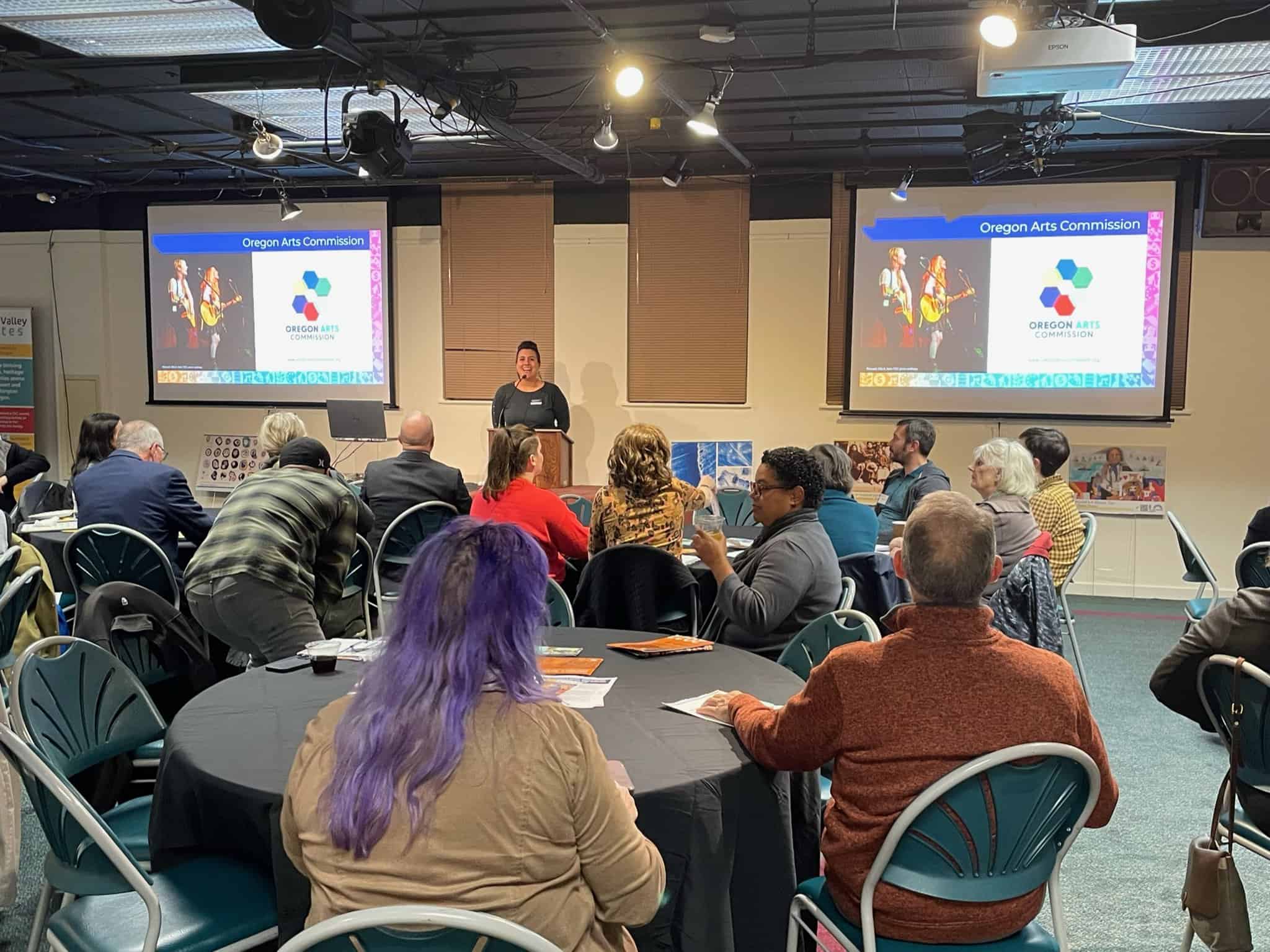Thoughts by Laura Strieb, AEP6 Coordinator
On Monday, November 6th, local arts leaders, and city and county officials gathered for a fabulous night where we were joined by Randy Cohen, Vice President of Research at Americans for the Arts along with representatives from the Oregon Arts Commission to learn and hear the results of a year’s long study and survey regarding the impacts of the Arts on the Economy.
Randy Cohen addressing the AEP6 crowd at Lakewood Center for the Arts, Lake Oswego.
Every five years, Americans for the Arts galvanizes local arts service organizations to go out and see what audiences at arts and culture events are spending around attending an arts and/or culture experience. We also survey arts and culture nonprofit organizations on their spending, hiring, employment and community engagement to get an accurate picture of how the arts drive the economy.
Even in the wake of COVID-19 and the resulting economic recession, the arts continue to provide a significant boost to recharging the economy in America’s local communities. The arts draws people out of their homes and back into community life—spending time with each other and spending their money within the local communities.
As we know the arts and nonprofit sectors were hit extremely hard by the pandemic shut down. So we definitely need to celebrate all the organizations that survived and were able to still be here today! The Arts show resilience!

Raziah Roushan, Executive Director of Tualatin Valley Creates (TVC) introducing guest speakers.
We excitedly were able to share with the arts community and county/city leaders that the data collected throughout all three counties clearly shows that the arts are a phenomenal Return on Investment (ROI). This data also shows the reason why we need to continue to advocate for deep investments of our arts and culture organizations. They are the change makers and action drivers in our communities.
The numbers back that up.

For those who want to see the tax revenue generated and jobs created – that data is also hard to refute! In the tri-county area, almost 7,000 jobs are generated in the arts and culture sector. This is most certainly an undercount as we are basing these numbers on the arts organizations that responded to our survey and we know there are many many more orgs out there.
Also from our survey results we see how this plays out in the lives people living in our communities as well as how we provide funding back to federal, state and local governments.
Personal Income generated by arts funding by county looks like:
- Clackamas County : $17.5 Million
- Multnomah County : $286.1 Million
- Washington County : $18.8 Million
Government Revenue (Local, State and Federal) by county :
- Clackamas County : $4.5 Million
- Multnomah County : $72.1 Million
- Washington County : $4.9 Million
Bottom line – the Arts are big business and we need to shout it to the rooftops that our policy makers need to continue to invest and work to make bigger investments in the arts and culture sectors throughout our region and state – because not only is it good for our economy, driving jobs, revenue, tax revenue. It builds community.
The arts get people together, get them talking, get them creating. Community is the catalyst to building a brighter future for all of us. The Arts are that driving force.
Raziah Roushan, Executive Director of TVC and Liora Sponko, Senior Program Manager
Oregon Arts Commission
This is our call to action – tell your neighbors, your community, state and federal leaders – that investment in the arts is the key to the communities we all want for our families.
Recording
Due to technical difficulty much of the video was lost but the audio remains.




